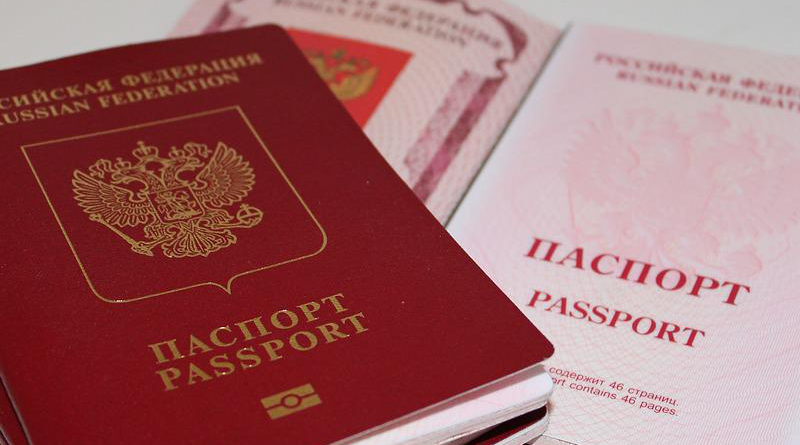
President Vladimir Putin has signed a decree allowing residents of two Ukrainian regions, Kherson and Zaporizhzhya, parts of which have been occupied by Russian forces during Moscow’s unprovoked invasion of Ukraine, to obtain Russian citizenship.
The decree, signed on May 25, states that residents of the two regions can receive Russian passports through a simplified procedure that was introduced in 2019 for residents of parts of Ukraine’s Donetsk and Luhansk regions that were controlled by Moscow-backed separatists.
After Russia launched its invasion of Ukraine on February 24, its forces managed to take a huge part of the Kherson region, including the region’s capital, Kherson, and about half of the Zaporizhzhya region, with the regional capital, Zaporizhzhya, remaining under Ukrainian control.
Putin and other Russian officials have insisted that the invasion’s goal was not to occupy Ukraine.
Russian-imposed authorities in Crimea, the Black Sea peninsula illegally annexed from Ukraine by Moscow in 2014, have said that they are ready to set up passport-issuance centers for Ukrainian citizens who choose to obtain Russian passports.
Meanwhile, Moscow says it is preparing measures to use against “unfriendly actions” by English-language media toward Russian media.
Russian Foreign Ministry spokeswoman Maria Zakharova told reporters in Moscow on May 25 that Russia “will always respond to all unfriendly actions against Russian media.”
“We are currently working out a whole package of measures against media, journalists from Anglo-Saxon media outlets, taking into account repressive measures undertaken against Russia media outlets,” Zakharova said, adding that Russia’s responses might be asymmetrical.
She gave no further details.
After Russia launched its unprovoked invasion of Ukraine on February 24, the European Union suspended the broadcasting activities of some Russian state-backed media, including the leading Russian external broadcaster, RT, questioning the impartiality of their coverage of the war.
